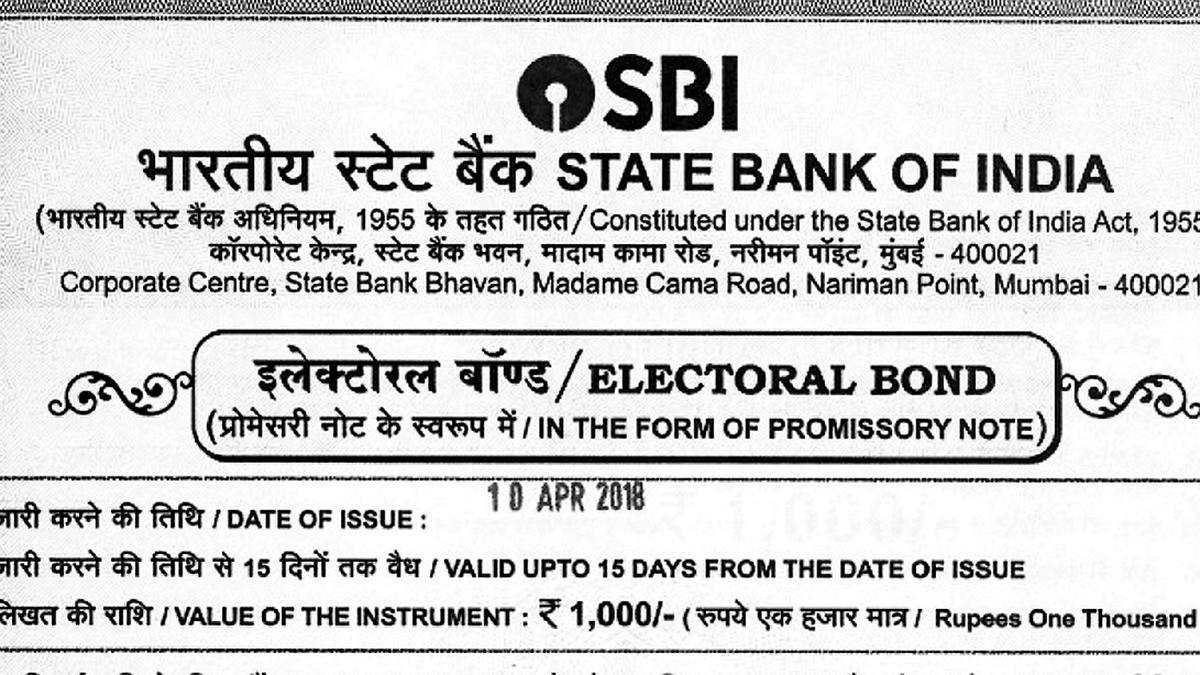
Making sense of electoral bond judgment through data Premium
The Hindu
Supreme Court deems electoral bonds unconstitutional, citing anonymous funding from corporations undermines democratic legitimacy.
Last week, the Supreme Court ruled the electoral bonds Scheme unconstitutional, saying that the anonymous influx of funding to political parties, especially from corporations, hinders democratic legitimacy. The unanimous judgment squashed the government’s argument that the scheme is transparent because donors have to go through official banking channels to purchase these bonds, despite their identity being hidden.
The Bench agreed that the voters’ right to know was violated, by the anonymity electoral bonds provide. In Justice Sanjiv Khanna’s opinion, “access to information which can materially shape the citizens’ choice is necessary for them to have a say in how their lives are affected.” This meant Solicitor General Tushar Mehta’s argument that no black or unaccounted money can be used for bonds was not strong enough as, “denying voters the right to know the details of funding of political parties would lead to a dichotomous situation.”
Data from the Association for Democratic Reforms (ADR), one of the petitioners in the case, shows that the share of unknown sources of income has only increased after the introduction of the electoral bond scheme, in direct contradiction to the government’s claim. The ADR categorises the income of political parties into two primary categories: known and unknown. Known income is further divided into two subtypes — voluntary contributions over Rs. 20,000 with donor details provided to the Election Commission of India, and other known sources of income such as the sale of movable and immovable assets. The unknown income encompasses voluntary donations under Rs. 20,000 where donor details remain undisclosed.
Table 1 | The chart shows that the share of unknown sources of income for national parties increased from 66% between FY15 and FY17 to 72% between FY19 and FY22.
Charts appear incomplete? Click to remove AMP mode
The transition year FY18, the year in which the scheme was introduced, was not considered for analysis. The BJP’s share of unknown income increased from 58% to 68% in the period, while the Congress’ remained at around 80%.
Also read: Unbonded: On the striking down of the Electoral Bond Scheme by the Supreme Court

‘We were not dying’: Russian woman rescued from Gokarna cave defends natural lifestyle with children
Russian woman Nina Kutina and her children rescued by Gokarna Police defend their natural lifestyle in Bengaluru.

Sivankutty stands firm on school timings change, slams Kerala Governor for ‘support’ of foot worship
Kerala Education Minister addresses revised school timings, engages with stakeholders, and criticizes Governor's support of foot worship.





















 Run 3 Space | Play Space Running Game
Run 3 Space | Play Space Running Game Traffic Jam 3D | Online Racing Game
Traffic Jam 3D | Online Racing Game Duck Hunt | Play Old Classic Game
Duck Hunt | Play Old Classic Game









